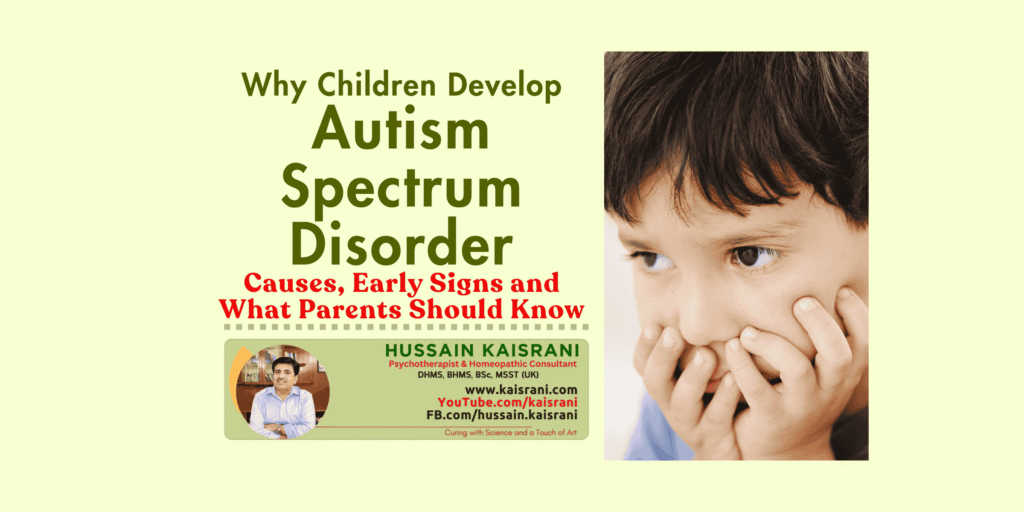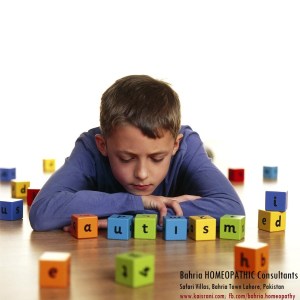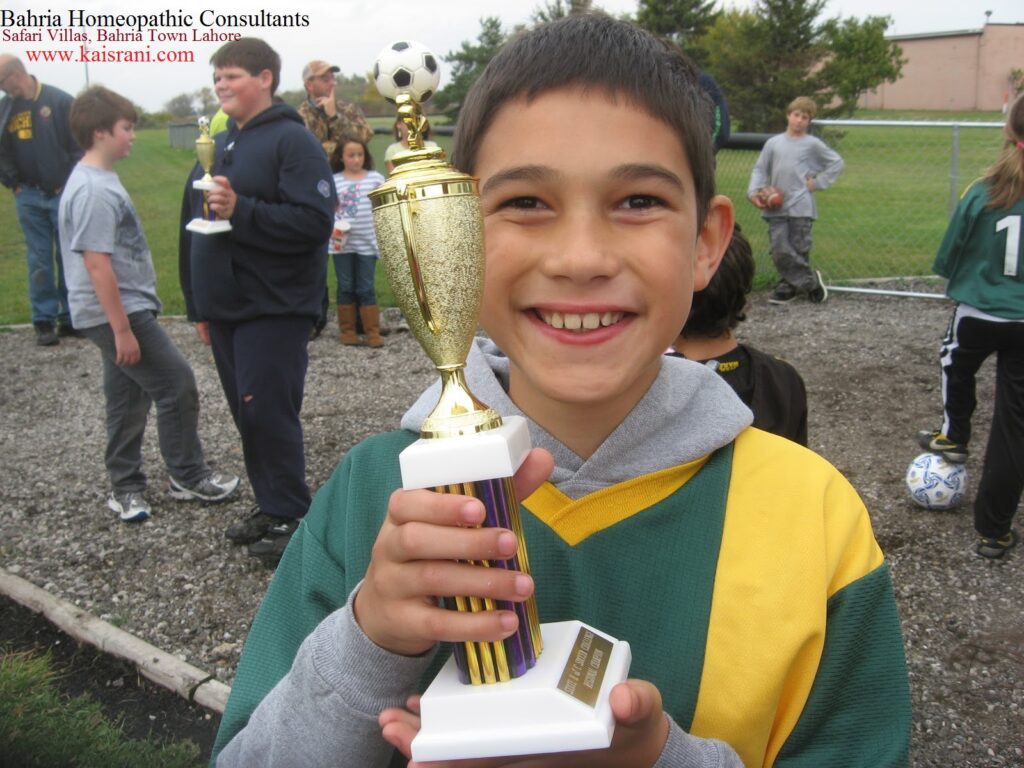Introduction
Receiving a diagnosis of autism spectrum disorder (ASD) for your child can be overwhelming and emotional. Many parents immediately ask, “Why did this happen? Could I have prevented it?” While there is no single cause for autism, understanding the potential factors, early signs and practical strategies can help families support their child’s development effectively.
Dr. Hussain Kaisrani, a leading homeopathic physician with over 20 years of experience, shares insights to help parents understand autism, ADHD, ADD, ODD and other neurodivergent conditions in children.
Possible Causes of Autism in Children
Autism is a complex neurodevelopmental condition influenced by multiple factors, including genetics, environment and early childhood experiences.
- Genetic and Hereditary Factors
- If there is a family history of autism, ADHD, ADD or other neurodivergent traits, the likelihood of your child being on the spectrum can be higher.
- Consanguineous Marriages
- Marriages within close family relations, which are common in some communities, can increase the risk of neurodevelopmental disorders in children.
- Advanced Parental Age
- Children born to older parents (commonly over 35) may have a slightly higher risk of developing autism. Delayed parenthood has become increasingly common and may contribute to this factor.
- Environmental Factors
- While vaccines have been controversially discussed in the past, research shows no strong evidence linking vaccination to autism.
- However, screen time and reduced social interaction; especially during and after periods like the COVID-19 pandemic; can significantly affect early childhood development. Excessive screen exposure ( virtual Autism ) can lead to developmental regression in some children.
Understanding Regression in Autism
Regression occurs when a child loses previously acquired skills, such as babbling, smiling or social interaction. This often happens between 1.5 to 2 years of age and may be triggered by:
- Family stress or trauma
- Reduced parental interaction
- Prolonged screen exposure
- Illness or environmental changes
Dr. Kaisrani has observed that children who experience regression due to these factors may later show symptoms of ASD, ADHD ADD or ODD.
Early Signs of Autism Spectrum Disorder Parents Should Watch For
- Limited eye contact or social engagement
- Delays in speech or language development
- Repetitive behaviours or restricted interests
- Difficulty adapting to changes in routine
- Reduced responsiveness to social cues or play
Recognising these signs early allows for timely interventions that can make a significant difference in a child’s development.
Practical Recommendations for Parents
- Minimise Screen Time
- For children under two, avoid television, mobile, games or other digital devices as much as possible.
- Encourage interactive play, reading, singing and physical activities.
- Encourage Human Interaction
- Talk to your child, respond to babbles and gestures and create daily routines that involve social engagement.
- Monitor Development Carefully
- Note any regression in skills or loss of interest in communication and consult specialists early.
- Support Healthy Routines
- Provide balanced nutrition, structured daily schedules and opportunities for movement and sensory play.
Dr. Kaisrani emphasises that early intervention, consistent interaction and reduced screen exposure can improve attention, social skills and communication, helping children reach their full potential.
Conclusion
Autism spectrum disorder and related neurodivergent conditions, such as ADHD, ADD and ODD, arise from a combination of genetic, environmental and developmental factors. While some causes are beyond parental control, many aspects of early childhood care – like limiting screen time and encouraging human interaction – can make a substantial difference.
By recognising early signs, understanding causes and creating supportive environments, parents can help children on the spectrum thrive.
About the Author: Dr. Hussain Kaisrani
Dr. Hussain Kaisrani (DHMS, BHMS, BSc, MS) is a renowned homeopathic physician specialising in neurodevelopmental and behavioural disorders, including autism spectrum disorder (ASD), ADHD, ADD, ODD and other neurodivergent conditions. With over 20 years of clinical experience, he integrates traditional homeopathy with modern research to support children’s cognitive, social and emotional development.
Dr. Kaisrani is committed to educating parents and practitioners worldwide through articles, seminars and consultations, emphasising early intervention, holistic care and practical strategies for children with developmental challenges.
For more information, visit kaisarani.com or https://kaisrani.com/category/diseases-treatment/autism-asd-adhd-neurodivergent/





